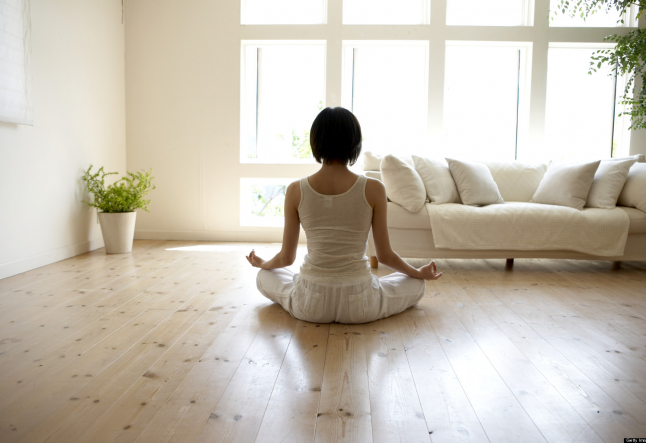ayurveda at home

purifying your home and mind
Ayurvedic articles are often written about identifying one’s constitution or imbalance and incorporating proper dietary choices and lifestyle habits in with daily life to support better physical and mental health. Rarely do we see deep consideration given to the environments in which we dwell day after day. Can we consider this one area to be free of effect on our state of health?
Many of us choose to dwell in the unexamined life that is comfortable but lacks the ability to fully support our evolution. Once we begin the process of opening our eyes and uncovering the very nature of our existence, we begin to be aware that everything plays a role in shaping our spiritual selves. There is a no more suitable place for this exploration than in the homes in which we dwell, day after day.
The primordial cause of disease from the Ayurvedic perspective is in forgetting our true nature as Divine. Examine your home as if the Divine dwelled in every room; your home is the temple which you erect to the Divine within. Remembering our true nature as spirit, we are better able to navigate every day in connection with that spirit, and allow it to direct our activities. The Divine dwells in silence and in sound, in light and in darkness; we are able to experience a range of sensations and to see that there are beauty and depth in contrast. Consciously decorating a room to fulfill your soul’s longing, connection with your innermost Self, begins the process of bringing that spirit into daily life.
If we are unaware of ourselves as Divine, we indulge in sensory pleasures at the expense of our spiritual development. By connecting with the senses, we continue the examination of our homes and see how the sights, sounds, and smells in our homes contribute to our health or disease. The senses are the tools we use to explore and understand the universe and to find the consciousness hiding there. In this aspect, we consider the constitution, the imbalance or the season of the year to choose the appropriate sensory stimuli.
The sights in our homes include the colors of the walls, the furniture and those treasures we display. We can decorate in consideration of our constitution and keep the colors cool for Pitta nature, blues, and greens; warming for Kapha nature, yellows and oranges; or grounding for Vata nature, golds, and tans. We can also keep the background colors neutral and choose accents that change with the seasons. Cooling accents in the summertime, warming in the fall and winter and heating in the late winter and spring can be one way to address the changing needs of the changing seasons.
The sounds in our homes become so commonplace that we will not notice the jarring sounds that surround us. Our bodies stop sending us the signals that these are disturbing to the mind and senses, but we continue to take them in, regardless of our conscious notice of the sensation or of its effect. The best thing to do is to spend some time in quiet reflection in your home and truly listen to the sounds. Once you have brought them to your attention, you can mute those sounds that are jarring and replace them with sounds that are soothing, enlivening, awakening… whatever you choose. The key is to choose the sounds in your environment to create a space of calm and serenity for your home sanctuary.
The aromas in your home environment are often only noticed fully upon returning home from some pristine vacation spot. They may be years old and so ingrained into the fabric of your life that you may need to enlist another’s honest support to ferret them out. Once you identify them, you may remove them and replace them consciously with essential oils, incense, or fresh air.
The key point is to become aware of your environment and make the choice to have its sights, sounds and smells contribute to your sense of well-being. To use your home as a temple to the indwelling God, so that you can begin each day in connection with your highest self – so that each step is taken to draw you closer and closer to your own experience of the Divine.
Read next >> yuj meaning – what is the meaning of yoga?